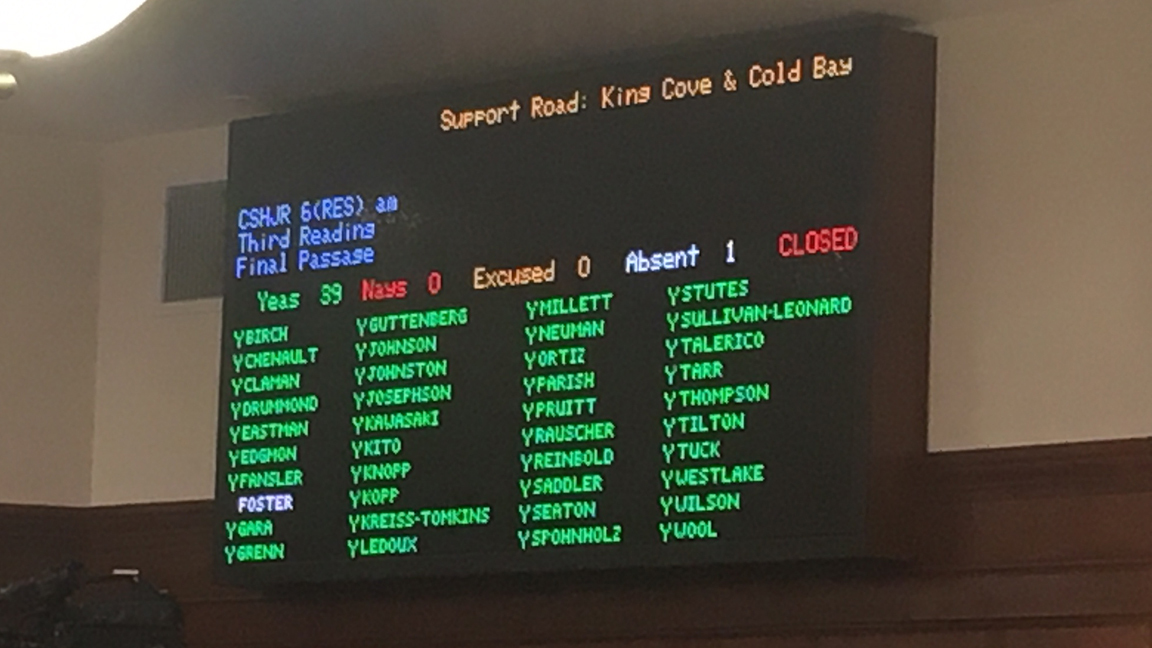The Alaska House of Representatives has approved a resolution favoring construction of a road between Cold Bay and King Cove. The resolution is the first item to reach a floor vote in the 30th Legislature.
On Wednesday morning, the House voted 39-0 (Rep. Neal Foster, D-Nome, absent) to approve House Joint Resolution 6. The resolution now goes to the Senate for consideration.
HJR 6, as a resolution, lacks the binding power of a bill. It asks the U.S. Congress to approve binding federal measures backed by the Alaska Congressional delegation to build a road between Cold Bay and King Cove on the Alaska Peninsula.
The road has been the source of national contention, as it would travel through Izembek National Wildlife Refuge, and the Department of the Interior has repeatedly refused to allow its construction.
Cold Bay and King Cove each have airports, but Cold Bay’s runway is one of the longest in Alaska and is capable of flights in worse weather. In poor weather, King Cove medevacs are forced to rely upon Coast Guard helicopters or must wait until good weather arrives.
Indigenous Peoples Day
In other business Wednesday, the House advanced closer to a vote on its first bill of the session, House Bill 78, which would establish the second Monday in October as Indigenous Peoples Day.
That day is already observed as a national holiday, Columbus Day, but Columbus Day is not recognized by the state as a holiday.
A final vote is expected Friday morning.
On Wednesday, lawmakers voted 14-25 (Rep. Jonathan Kreiss-Tomkins, D-Sitka, absent) against an amendment that would have shifted the holiday to the second Sunday in October instead.
The sponsor, Rep. George Rauscher, R-Sutton, suggested it made sense because it ceremonially puts “Alaska’s first people first,” ahead of Columbus.
Rep. Tammie Wilson, R-North Pole, suggested that having Columbus Day and Indigenous Peoples Day on the same day would force two incompatible views ─ Columbus as an instrument of colonialism and as a symbol of discovery ─ against each other.
Rep. Justin Parish, D-Juneau, responded by saying the Columbian and Indigenous viewpoints of American settlement aren’t in opposition, they’re two sides of the same coin.
“Columbus Day means nothing without the Americas and the people of the Americas,” he said. “If we separate them out … I think that creates an artificial separation in what is really one issue that is still unfolding.”
If approved on Friday, the bill would advance to the Senate for consideration.
• Contact Empire reporter James Brooks at james.k.brooks@juneauempire.com or 419-7732.

